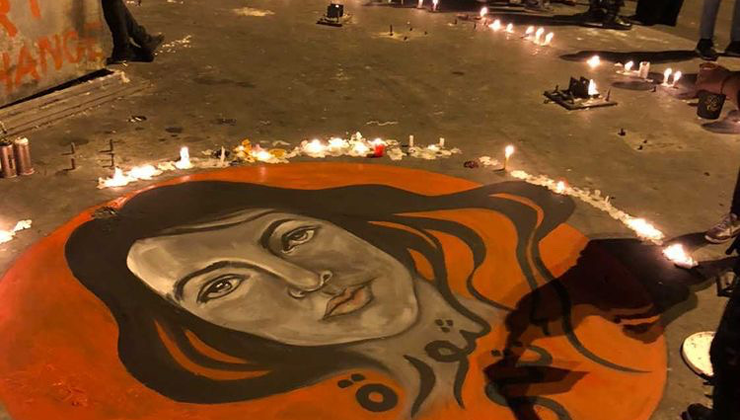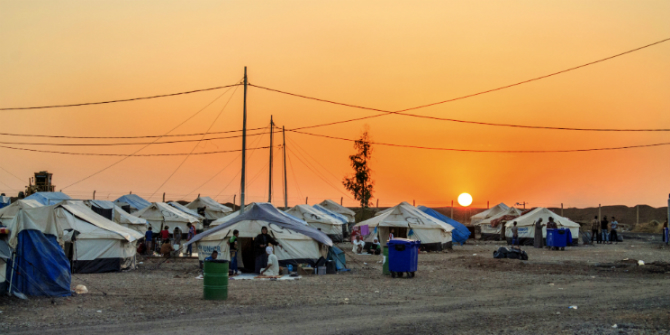Activist in Residence and Co-founder of PAIMAN Alumni Trust, Mossarat Qadeem, draws on her experience tackling violent extremism in Pakistan to make a case for inclusive peace education in schools.
Young people do not become extremists overnight. It takes them time to agree to learn how to make explosives, fill suicide jackets with explosives or be prepared to commit suicide. Turning a normal young person into an extremist one is a transformative process. In this battle to win hearts and minds, the peaceful moderate majority must use effective techniques and strategies. Counter strategies must also undertake a transformative process, aimed at strengthening children’s understanding of humanity, human rights and pluralism, and widening their knowledge of other faiths, people and global politics. Inclusive peace education in school curricula is key to achieving this goal.
In 2015, the UN Secretary-General’s Plan of Action to Prevent Violent Extremism recognised the importance of education. The UN Security Council emphasised this point in Resolutions 2178 and 2250, notably highlighting the need for “quality education for peace that equips youth with the ability to engage constructively in civic structures and inclusive political processes” and called on “all relevant actors to consider instituting mechanisms to promote a culture of peace, tolerance, intercultural and interreligious dialogue that involve youth and discourage their participation in acts of violence, terrorism, xenophobia, and all forms of discrimination.”
This increasing recognition is good news. However, there is a need to place greater emphasis on peace education curricula that considers the cognitive development of children ages 7-18 and enables them to think positively and logically. The right-wing extremist and xenophobic groups in Europe, and the Islamic, Hindu, Buddhist, Zionist extremist groups in other parts of the world, work in a strategic and continuous manner to win the hearts and minds of youth and persuade them to use violence as way of achieving their goals. Institutionalised, inclusive peace education is a long-term remedy that can give learners the reasoning, logic and critical thinking skills to build resilience to extremists’ appealing narrative, messages and propaganda.
The importance of content

Students from Madrassas and private schools take part in a poetry competition. “Let’s hold hands together and take the whole world with us. Our slogan is peace. So that my homeland along with others remains peaceful.”
As Gordon Allport said: it is easier to smash atoms than stereotypes – which are rooted in collectively held narratives, historical memories, beliefs about one’s self-righteousness and strong feelings of anger, hatred and frustration.
Schooling influences children’s social cognitions and feelings, which may be just as powerful in predicting outcomes as intelligence or school curriculum. Extremists transform children’s positive human instincts by building on their hate and anger. This motivates them to work collectively for a common cause, justifying violence on these grounds.
It is important to separate violent acts from different ‘isms’ at all levels. The goal of peace education should be to address stereotypes through a curriculum that can increase tolerance and change conceptions of “self” and “other”. The content of curricula must address historical prejudices, socio-cultural biases and beliefs. Emphasis should be on integrating diversity into education so learners consider the racial, religious, ethnic, sectarian and cultural diversity of their societies an important part of their national heritage. The contents must prepare them to embrace and value pluralism, learn how to recognise and validate a wider range of viewpoints and assimilate diversities in multiple forms at the local and global levels.
Peace education curricula should take into account the psychological and social aspects of the individual and help to build positivity within him/her. This means curricula should help learners understand their multiple identities – religion, sense of injustices, marginalisation, stigmatisation, segregation, as well utopian concepts and exploitation of religion – and how to prioritise them. It should help develop an understanding of “difference” and similarity, so that those who are “different” can be seen as similar as well – and those who feel they are “different” have positive identities and self-perception.
Curricula should also recognise and define human connection, which is the emotional core of human identity, and instill a strong sense of affiliation and belonging to the nation and as citizens, so that they have an understanding and vision of interdependence and sense of the common good. As Zahirshah, a student with extremist tendencies who underwent PAIMAN’s peace education programme, noted: “I found the human connection and sense of belonging the most appealing aspect of the PAIMAN program. If I had been taught this concept earlier, I would never have thought of hurting any human being or any place. I now realize how important it is to belong to a soil and cherish whatever belongs to it.”
The Value of Skills
In working with extremists, I realised the importance of instilling in them the character traits we want for our own children, and the need to integrate these into educational curricula.
Extremists hone in on traits such as willpower, courage, a sense of justice, loyalty and obedience. The fault lies in a lack of reason and critical thinking, and unquestioning obedience to rules that feed their mindset. We need to expose our students to clashes of perspectives, to dissent, to the constant possibility of alternatives. They should be given the skills to make judgments on what to tolerate and what is intolerable. They need to be taught courage also comes in the form of dissent and standing up to injustice. They need to be taught that kindness and empathy should trump obedience that dictates cruelty and violence.
PAIMAN’s inclusive peace education framework is based on our rich cultural and spiritual values together with universal human values. Using case studies on human rights, interfaith, intra-faith harmony, value of tolerance, pluralism and positive communication, we appeal to the emotional, psychological, intellectual and empirical instinct in a learner. Education should give students confidence, knowledge and understanding, so that tomorrow they don’t become “identity seekers, protection seekers, and rebels” with vigor to cast their views on society.

As part of PAIMAN’s Inclusive Peace Education Programme, students from private schools and Madrassas undertake creative work together – as seen here during a painting and poetry competition.
Methodology
Critical thinking, reflection and participation should also be integrated into the pedagogy of teaching at all levels of education. The role of the teacher becomes crucial in imparting a non-biased curriculum in an effective manner. For this, training is fundamental for teachers to develop their skills and capacities.
In some countries teachers are expected to spot radicalisation and report children’s interest in extreme ideologies. This is far from simple – and leads to misconceptions and misunderstandings. Teachers should be taught to spot troubled children, but their overarching task is to develop kids positively – not just focus on the negative. Training teachers to provide a safe learning environment free of personal prejudices has become extremely important.
Violent extremism has existed in various forms and shapes throughout human history, but today technology enables local acts of violent extremism to be felt globally. It is imperative that we address this issue as global citizens through pro-active preventive strategies rather than reactionary ones. Education, particularly peace education, is a critical means of deepening resistance and enabling effective prevention. It is important that states incorporate peace curriculum into education policies as a preventive measure that not only makes students resilient citizens but can also address the psychological, emotional and intellectual appeal of narratives – soft power – that terrorists purport.
Watch Mossarat Qadeem’s public event ‘Engaging Communities in Preventing and Countering Violent Extremism’.
The views, thoughts and opinions expressed in this blog post are those of the author(s) only, and do not reflect LSE’s or those of the LSE Centre for Women, Peace and Security.
Image credit: Feliphe Schiarolli on Unsplash




